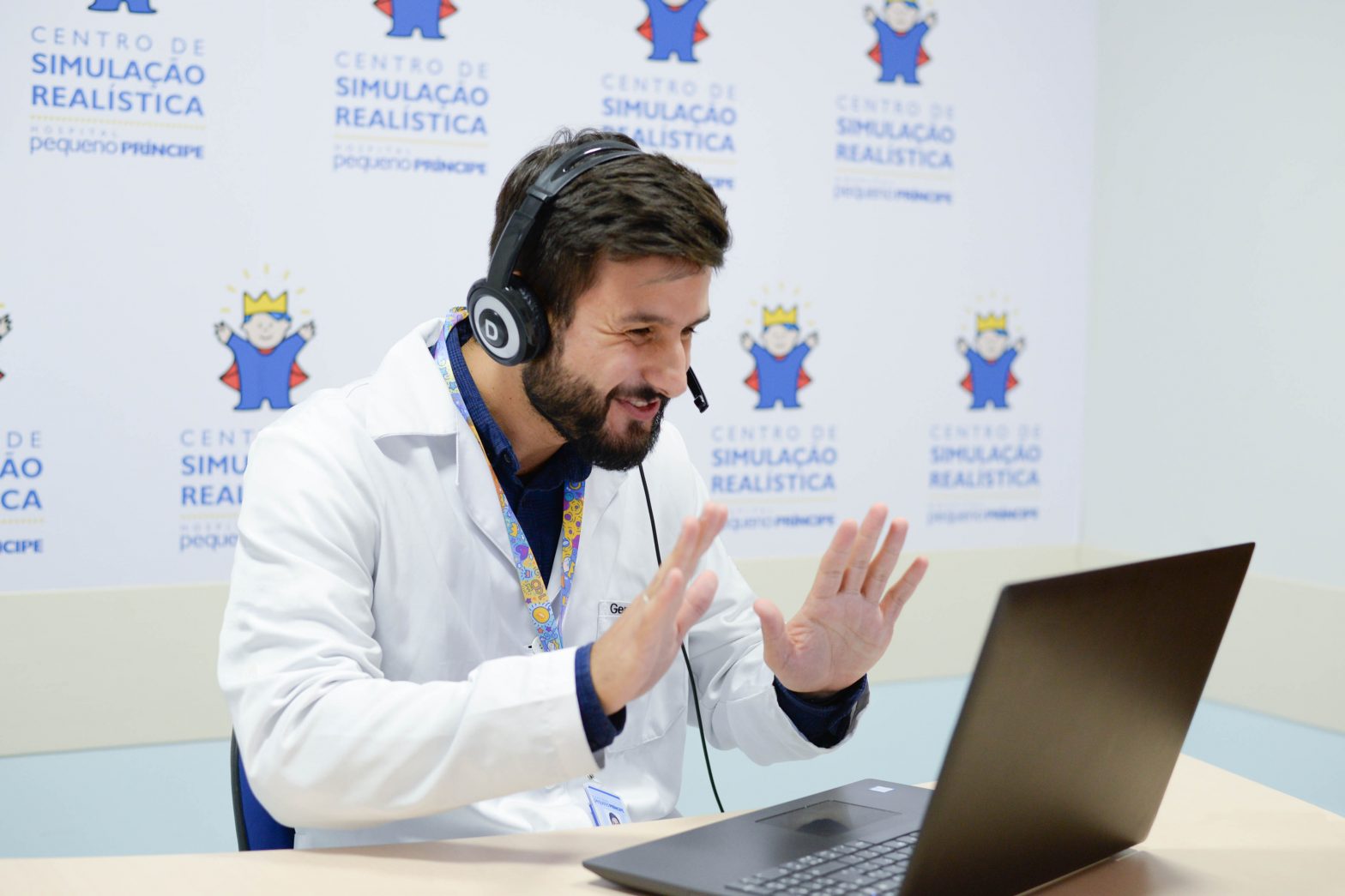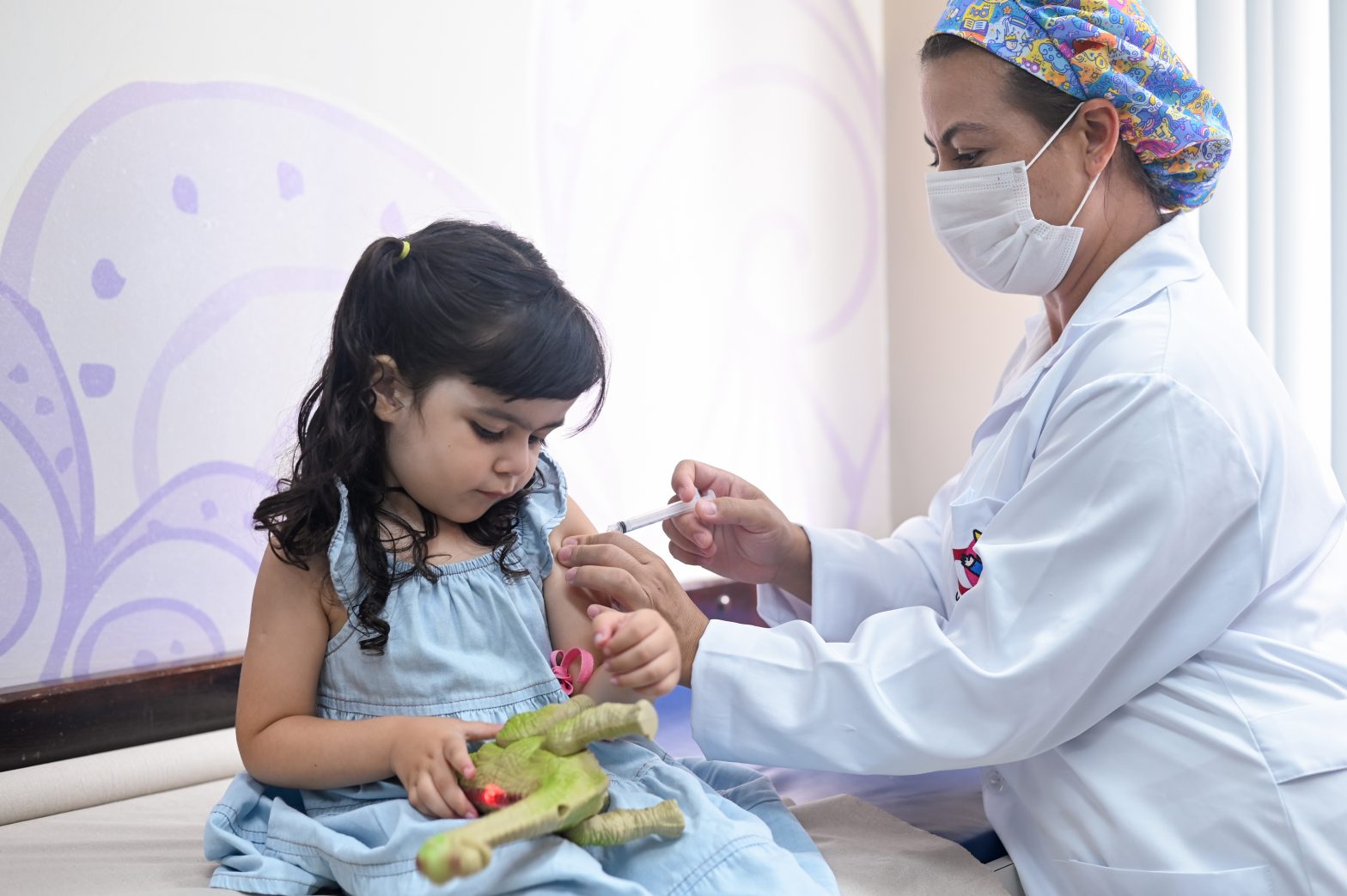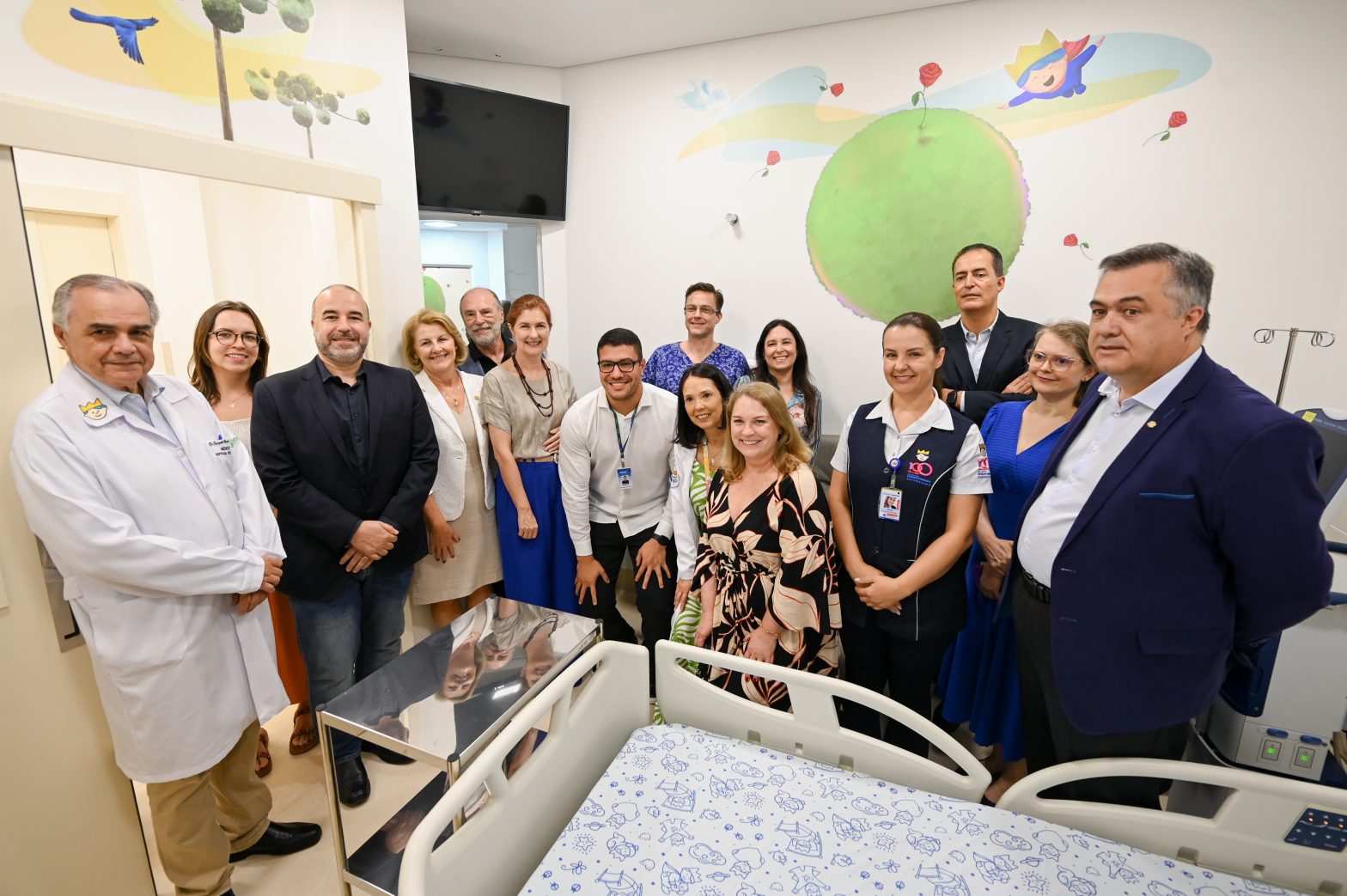Tax waiver transforms the lives of children and adolescents
Allocation of Income Tax contributes to equity in healthcare for patients from all over the country
When he was 1 year and 5 months old, Pietro Carbone Coletto showed signs that worried his parents, including refusal to eat, high fever, and the appearance of bruises on his body. After undergoing a consultation at the emergency room in their city, Porto Alegre (in Rio Grande do Sul state), the family received the severe leukemia diagnose.
The boy began treatment in Rio Grande do Sul, but as he did not respond to chemotherapy cycles, he was sent to Pequeno Príncipe Hospital, in Curitiba (state of Paraná) – more than 700km away from his home – to undergo a bone marrow transplantation (BMT). “From the beginning we were very well received, with great quality of service and a lot of attention. The team that took care of him was always very transparent and clear about what would be done, and this made us feel very safe and calm,” says his mother, Samusa Carbone Coletto. She also remembers that they had never left Porto Alegre for any health treatment before.
Two years after the BMT, Pietro needed to undergo heart surgery, also carried out in Pequeno Príncipe. And all the excellent care and attention, with equity for patients from the Brazilian Public Health System (SUS, abbreviation in Portuguese), are valued by the boy’s family. “I like to point out that I have never seen a distinction between patients who have health insurance and patients who are assisted under the SUS. SUS mothers have full support from the Participating Family Program, which provides everything from a place to rest to a place to shower. This is really cool and made a big impression on me. The Pequeno Príncipe represents rebirth and life for us, because it was there that my son was born again. Today he is 7 years old and has the opportunity to live a healthy life,” highlights Samusa.
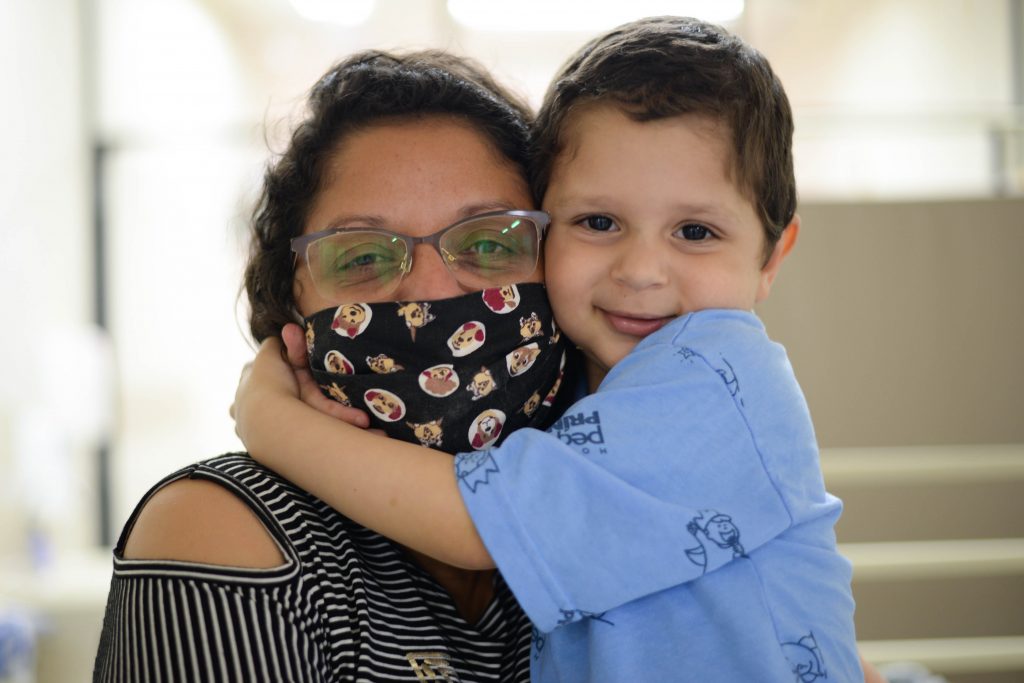
All the assistance given to Pietro was through the Brazilian Public Health System and he is not the only one. Pequeno Príncipe assists 60% of its patients through the SUS. The support structure for patients and families is what places the institution’s services as a national reference. As the Hospital offers care in 47 specialties and areas of pediatrics, the teams have specialists from the most different areas to form the care group for boys and girls. In addition to the medical teams, nursing professionals, nutritionists, physiotherapists, speech therapists, pharmacists, psychologists, and social workers are added.
Challenges
Providing quality care to SUS patients is challenging from an economic and financial point of view, as historically, in Brazil, the health sector suffers from underfunding, especially with the delay in SUS payments. In Pequeno Príncipe, the last few years have seen deficits related to assistance, showing a large gap between services provided via SUS and the revenue received.
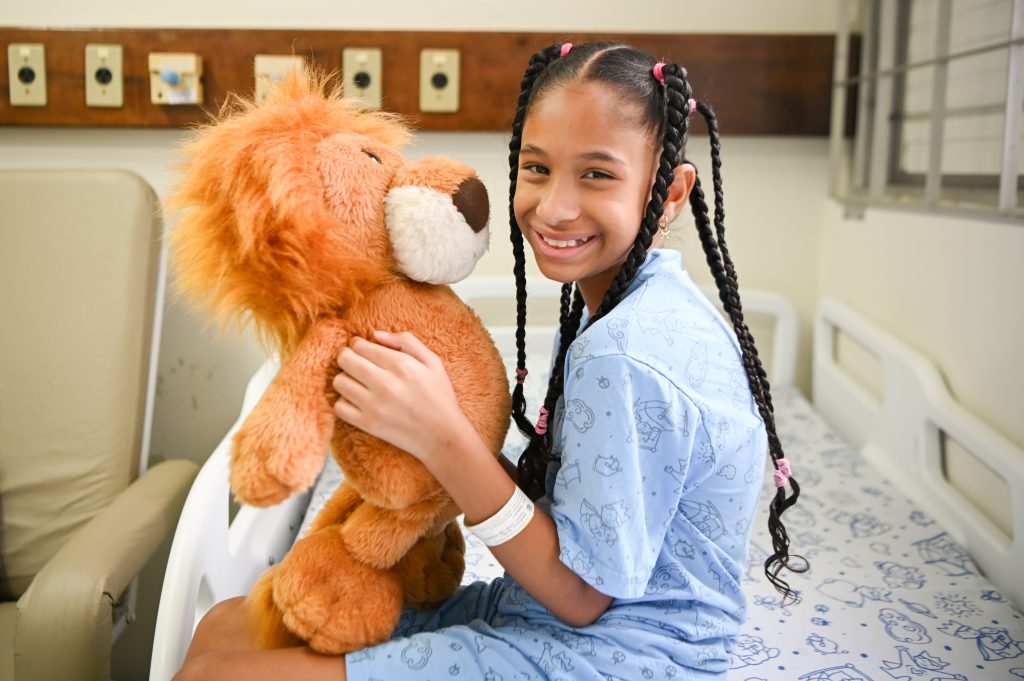
To face these challenges, the Hospital counts on the support of companies and individuals. And the tax waiver mechanism is a great ally in this process, as it allows, when declaring Income Tax, the citizen who uses the complete form to allocate up to 3% of the amount, payable or received, to institutional projects of philanthropic organizations like the Pequeno Príncipe. The process is quite simple and has no cost to the taxpayer. In the case of those who have tax payable, the amount donated to the chosen institution will be subtracted from the amount to be paid. In the case of Income Tax to be refunded, the amount donated will be added to what is to be received, adjusted by the Selic rate (Brazil’s benchmark interest rate).
Important! Donations made by US citizens are tax deductible through the Fiscal Sponsorship Fund.
According to the Brazilian Federal Revenue Service, the potential for donations from individuals through tax waivers in Brazil is US$ 2.492 billion, but in 2023 donations represented only around 2% of this total. If directed to the health sector, for example, these resources could save many lives like Pietro’s.
In addition to not involving extra expenses, another advantage of tax waivers is that the donor can choose which institution and project they want to direct their tax towards and, thus, monitor how the resources will be applied. The modality is also regulated by federal, state and municipal laws, and therefore projects need to be approved and monitored by legal councils and the Court of Auditors. The bodies also monitor accountability, results, and indicators.
How to donate
In 2024, the allocation must be made by May 31st, through the issuance of a donation DARF in the Brazilian Federal Revenue program. The system itself calculates the amount that can be directed. People who wish to contribute to Pequeno Príncipe and children’s health will need to send an email with the donation DARF to doepequenoprincipe@hpp.org.br and its proof of payment, their personal data, and the phrase “Targeted donation to Pequeno Príncipe Hospital”. If in doubt, interested parties can access this link.
For more information about donations made by US-based donors, please click here.
More
Pequeno Príncipe qualifies child care in public primary care and emergency care units
Curitiba, Paranaguá, and Iguape, in Paraná and São Paulo states, already have the knowledge of the Hospital’s pediatricians to offer more effective care
COVID-19 and dengue fever are threats to the health of children in Brazil
The first quarter of 2024 was marked by an increase in the number of cases and deaths caused by the two diseases
Pequeno Príncipe opens eight new intensive care beds
Implemented with the support of Volkswagen and the Government of the State of Paraná, the structure increases the capacity of ICU vacancies by 12%


